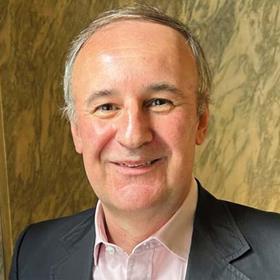Andy Boorman, a professional trustee and member of the Society of Pension Professionals (SPP), explains the importance of the regulator’s work on trusteeship and the need for high standards of professionalism and independence.

As part of its move to a more prudential style of regulation, the Pensions Regulator (TPR) is currently developing its approach to the oversight of the professional trustee industry.
This is timely. It is in all independent trustee firms’ interests that the industry thrives through delivering the highest-quality independent stewardship and governance. Even more importantly, it is in the interests of scheme members, whose benefits or savings professional trustees work to secure, and of scheme sponsors who support schemes and expect good governance.
Building on its research to date, the regulator has identified five areas of focus where risks to savers’ outcomes could arise and where it is focusing its engagement. These areas are the trustees’ relationship with the employer; profit and remuneration models; sole trusteeship; the use of in-house advisers; and the nature of scheme decision-makers.
However, one theme spanning all of these areas appears to be the risk of any conflict to trustee independence in decision-making.
Trusteeship and conflicts of interest
The importance of trustee independence and freedom from conflicts of interest cannot be overstated. This is why many employers have recognised that having the chief financial officer (CFO) or managing director as a trustee could present a conflict – and that members would be better served by an independent trustee to provide challenge and an external perspective.
“As independent trustees, we cannot be seen to be compromised in our fiduciary duties. As a profession, we must act – and be seen to act – beyond reproach in our work.”
Andy Boorman, SPP
However, as independent trustees, we must remind ourselves that we too cannot be seen to be compromised in our fiduciary duties. As a profession, we must act – and be seen to act – beyond reproach in our work.
What we do matters to the many thousands of members and savers who rely on our judgment and decision-making. It matters to sponsors who have also often contributed substantial amounts to schemes.

Having effective and collaborative relationships with employers and sponsors, built on mutual trust, is an essential ingredient for trustees to do their work well. But in challenging situations where views between stakeholders may diverge, trustees need to demonstrate that they will always do what is right for those they serve, using experienced judgment. They should never allow themselves to be swayed by undue employer pressures nor by their own financial considerations.
Indeed, the need for proven independence is arguably as great now as it has ever been. Who would have imagined 20 years ago that today’s hot topics would include sustainability and climate, endgame planning, and even what to do with surpluses? These areas are major inflexion points for schemes, where good decision-making will define the outcomes our members enjoy in their retirements.
The future of professional trusteeship
As the professional trustee market has changed in recent years, it has brought a huge number of benefits to scheme members and employers. CFOs appreciate the scrutiny and challenge an independent trustee brings. The market for independent trustees must continue to thrive, delivering continued innovation as well as great stewardship and retirement outcomes.
“It is vital that, as a profession, we engage fully with TPR’s review and help define a template for professional trusteeship which serves all stakeholders well.”
Andy Boorman, SPP
But professional pension trusteeship carries enormous responsibilities. We can only deliver properly on those responsibilities and preserve our reputation through holding ourselves to the highest standards.
Given both market developments and the changing landscape of schemes’ funding positions, the regulator’s ongoing review of the professional trustee market is both timely and appropriate. We understand the regulator’s general shift towards more prudential regulation.
It is vital that, as a profession, we engage fully with TPR’s review and help define a template for professional trusteeship which serves all stakeholders well.
At the heart of that must lie the overarching principle of independence in our conduct and decision-making in order to secure good retirement outcomes for our members and savers – in turn supporting wider societal efforts to maintain trust and confidence in retirement saving arrangements.
Andy Boorman is a member of the Society of Pension Professionals.

























